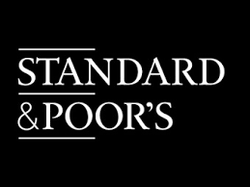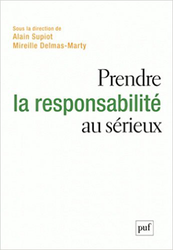
June 21, 2016
Breaking news


June 20, 2016
Breaking news

Little is known about how to ‘regulate the Internet’…
Outline solutions, however, do seem to have to be found in ex-post mechanisms since Regulation (broadly speaking) understand ex-ante and ex-post mechanisms as a continuum, and since Regulators increasingly concentrate ex-post mechanisms in their hands as an effective way to ensure execution of the ex-ante prescriptions they themselves elaborated.
Ex-ante mechanisms aim at making algorithms more ‘loyal’.
As long as we hope for devices to be trustworthy and to be held accountable for their ‘loyalty’, we give merits to the idea that we probably should “take liability seriously”.
On June 14, 2016, the Californian father of one of the victims of the 11/13/2015 Paris attacks filed a suit in a U.S. District Court to prosecute Google, Facebook and Twitter.
The legal dispute is clear.
The applicant based its claim to hold the companies liable on the grounds that they let terrorist groups use their networks: “The suit claims the companies “knowingly permitted” the Islamic State group, referred to in the complaint as “ISIS”, to recruit members, raise money and spread “extremist propaganda” via their social-media services”.
Conversely, the defendants unanimously claimed that they had actively implemented ‘policies’ against extremist material, and that they were working with law enforcement entities to improve regulations on the matter. Self-regulation and ethics versus common liability law.
The companies also pointed out the fact that they were not publishers, hence they could not face liability for the material users post on their networks. This is not, however, the issue at stake: the complaint concerns the use of the network not as a mere way to broadcast messages, but as a way to recruit murderers, provide them with convenient tools to communicate and to prepare criminal operations—allegations for which law does not exempt social media companies from liability.
These allegations are worth being ‘taken seriously’, should the law be unclear on whether the companies could be charged indeed, and should the total exemption from liability of such companies pleading for their ‘neutrality’ be the exception rather than the norm.
The question of principle is thus as follows: is exemption from liability of those who hold the ‘digital space’ together really the norm?
If so, their exemption from liability needs to be extended to a scenario that had not been covered by the law yet. If not, then common liability law is the rightful legal basis to assess whether the companies can be found liable or not—provided that a direct causal link between the unlawful act and an actual harm suffered by the applicant can be demonstrated.
The legal dispute is clear.

Jan. 16, 2015
Breaking news

One can only be amazed or even upset.
First, the agreement is not yet concluded. It would be in a month or two. How is it that we already know? Secondly, contracts, because the transaction is a contract listed by the Civil Code, are not intended to be public. How is it that we already know everything? The person who gave the information "was keen to remain anonymous." It would have suspected ......
Third, it is true that the regulation of rating agencies is a big issue. Special texts have been taken but academics think the right tools stay missing and that is probably the liability, general legal instrument, which is the most appropriate.
But the responsibility of commitment requires a trial, evidence, respect for the rights of defense, due processs, legality of offenses and penalties.. Here, $ 1 billion is paid by the company only to avoid that opens a lawsuit against it. The allegation is the rating agency would have underestimated the subprime risk.
But on one hand everyone says that the rating agency has actually done the facts allegued since payroll so that the file doesn't open. On the other hand, and from the perspective of regulating the information that would be out of the trial, a trial being a form of crisis, will not come out.
So this sort of industry fof "Deals of Justice", apart from the fact that some describe the phenomenon as a "racket", isn't a "decriminalization" of regulation for a "civilized regulation" through the transaction contract. On the contrary, this movement that is spreading constitutes an increased repression whic diminishes rights of defense for the operator and information for the sector.
One can only be amazed or even upset.
Oct. 22, 2014
Thesaurus : 02. European Union
Sept. 17, 2013
Thesaurus : Doctrine

Updated: Feb. 6, 2012 (Initial publication: Feb. 6, 2012)
Thesaurus : Doctrine


